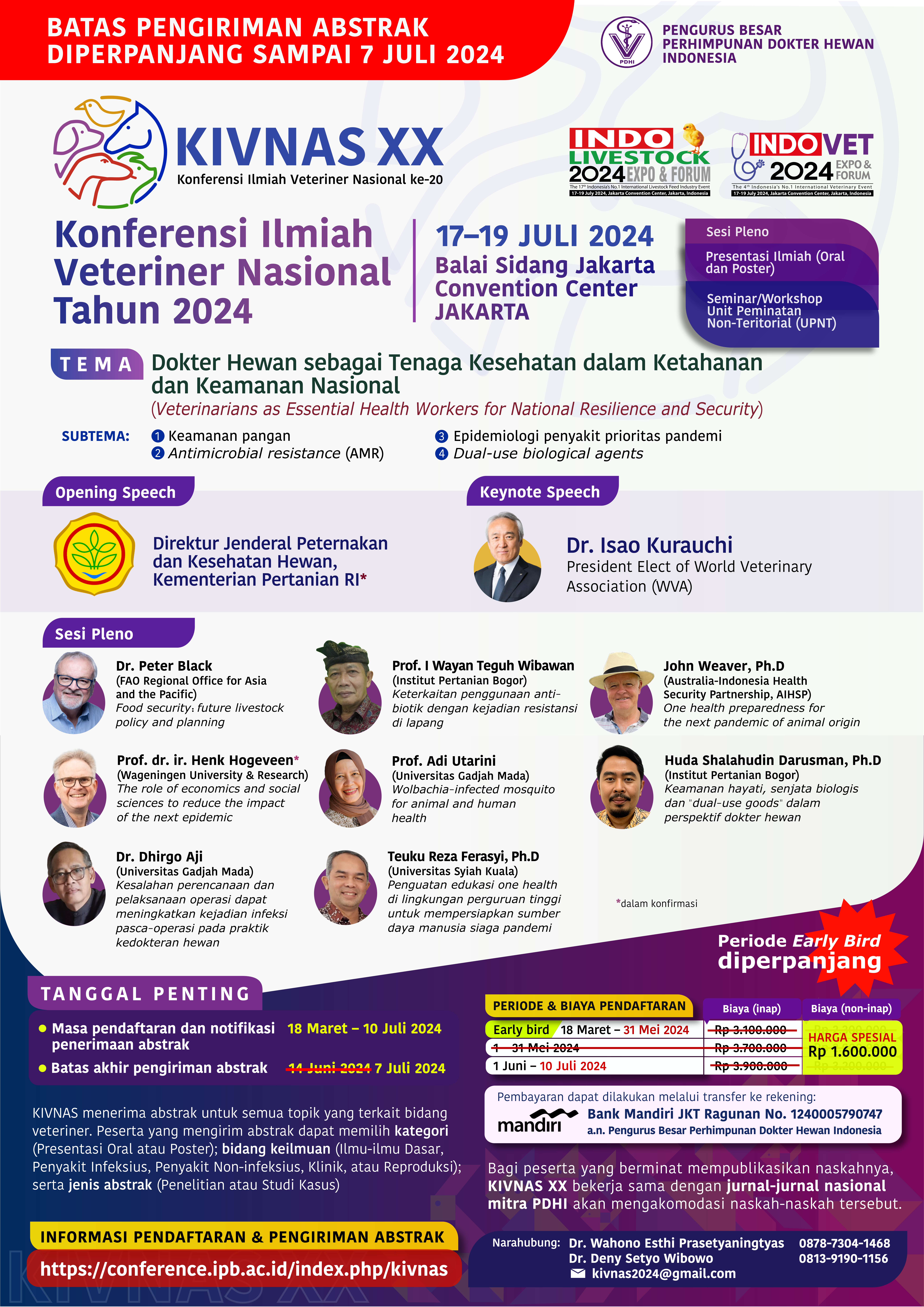Veterinary Professional Perspective on Biosafety, Biological Weapons and Dual-Use Research of Concern
Keywords:
one-health, biorisk, pathogens, zoonotic disease, mitigationsAbstract
The concept and implementation of the one-health as a comprehensive approach to human, animal and environment health are truly essential to ensure the holistic approach of earth’s well-being. Veterinarians play a crucial role in ensuring the one-health implementation especially in identifying and managing zoonotic diseases, which can have significant implications for both animal and human health. Research into animal disease using advances biotechnology continues to make contribution to food security, health of animals and ensuring the safety of trade animals and animal product. While this research is intended for beneficial purposes, but it can carry the possibility of unintended consequences and misuse and therefore have dual-use implication. Dual-use research in veterinary science includes studies on pathogens that could potentially be used in biological warfare or bioterrorism therefore it is important to have oversight policies and ethical consideration to prevent the misuse of veterinary research. Implementation of biorisk management focused on the identification, assessment, and mitigation of risks associated with biological activities. This is to ensure that research and practices in veterinary science are conducted safely to prevent accidental release or misuse of pathogens. Responsible conduct in veterinary science is the responsibility of major stakeholders including veterinarians, researchers, institutions, grant funders, industries, educators, regulatory authorities, scientific publishers, and professional associations.



